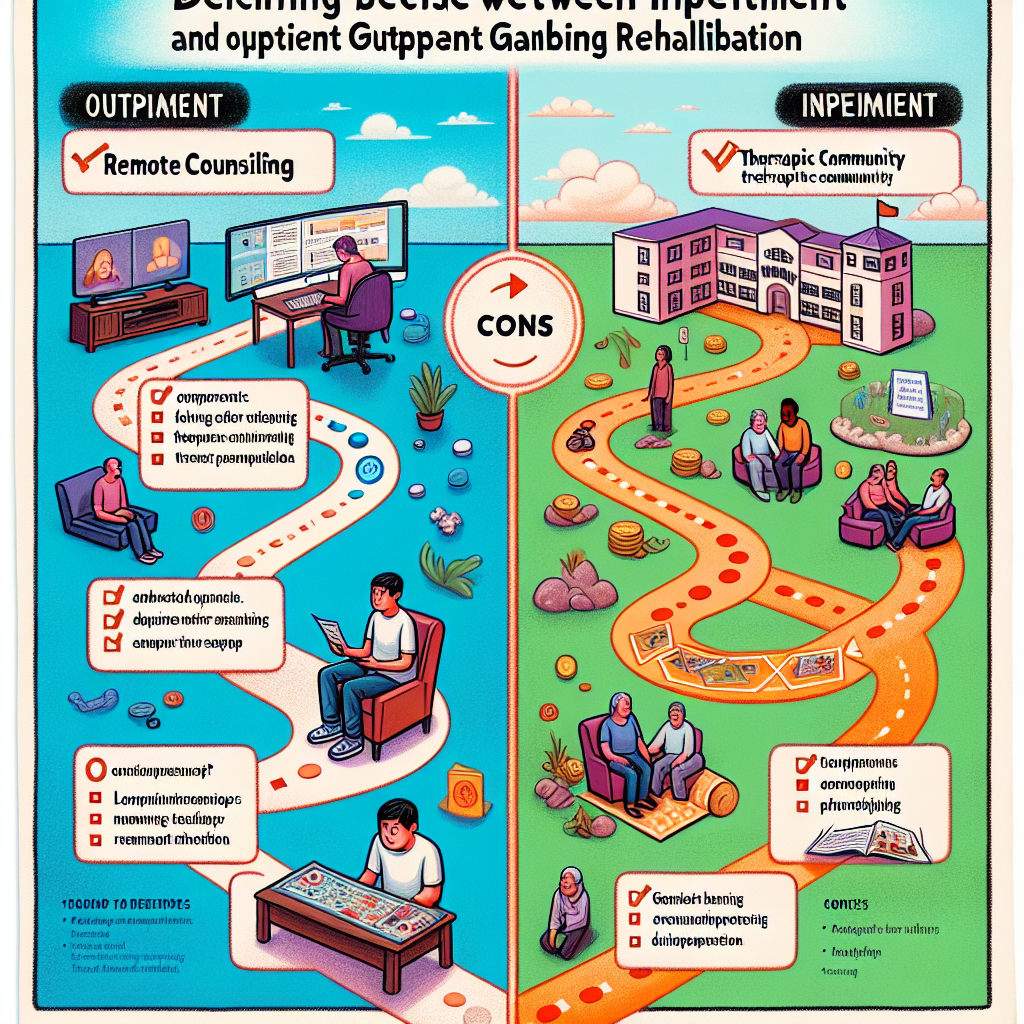-
Table of Contents
“Find Peace Within: Mindfulness and Meditation for Heroin Addiction Recovery”
Introduction

Mindfulness and meditation have emerged as powerful tools in the recovery process for individuals battling heroin addiction. These practices focus on cultivating a heightened state of awareness and presence, which can be instrumental in managing the intense cravings and emotional turmoil often associated with addiction. Mindfulness involves paying deliberate attention to one’s thoughts, feelings, and bodily sensations in a non-judgmental manner, fostering a deeper understanding of the triggers and patterns that fuel addictive behaviors. Meditation, on the other hand, provides a structured approach to achieving mental clarity and emotional stability through techniques such as focused breathing, visualization, and guided imagery. Together, these practices can help individuals develop greater self-control, reduce stress, and enhance overall well-being, making them valuable components of a comprehensive heroin addiction recovery program.
Benefits Of Mindfulness In Heroin Addiction Recovery
Mindfulness and meditation have emerged as powerful tools in the journey of heroin addiction recovery, offering a beacon of hope and a pathway to healing. These practices, rooted in ancient traditions, have been increasingly recognized for their profound benefits in modern therapeutic settings. By fostering a heightened state of awareness and presence, mindfulness and meditation can significantly aid individuals in overcoming the formidable challenges associated with heroin addiction.
One of the primary benefits of mindfulness in heroin addiction recovery is its ability to reduce stress and anxiety. Heroin addiction often leaves individuals in a state of constant turmoil, where stress and anxiety become overwhelming. Mindfulness practices, such as deep breathing exercises and body scans, help individuals to anchor themselves in the present moment. This grounding effect can alleviate the intense emotional distress that often accompanies withdrawal and the early stages of recovery. By learning to observe their thoughts and feelings without judgment, individuals can develop a more compassionate relationship with themselves, which is crucial for long-term recovery.
Moreover, mindfulness and meditation can enhance emotional regulation, a critical aspect of overcoming addiction. Heroin addiction frequently disrupts the brain’s natural ability to manage emotions, leading to impulsive behaviors and emotional instability. Through regular mindfulness practice, individuals can cultivate greater emotional resilience. Techniques such as mindful breathing and meditation encourage a non-reactive stance towards emotions, allowing individuals to respond to cravings and triggers with greater equanimity. This newfound emotional balance can empower individuals to make healthier choices and resist the urge to relapse.
In addition to emotional regulation, mindfulness and meditation can improve cognitive functioning, which is often impaired by prolonged heroin use. Heroin addiction can lead to significant cognitive deficits, including problems with memory, attention, and decision-making. Mindfulness practices have been shown to enhance cognitive flexibility and executive functioning. By training the mind to focus and sustain attention, individuals can improve their cognitive abilities, which are essential for navigating the complexities of recovery. This cognitive enhancement can also bolster self-efficacy, giving individuals the confidence to tackle the challenges of sobriety.
Furthermore, mindfulness and meditation can foster a sense of connection and community, which is vital for recovery. Addiction often isolates individuals, severing their ties with loved ones and support networks. Group mindfulness sessions and meditation classes provide a supportive environment where individuals can share their experiences and learn from others. This sense of belonging can mitigate feelings of loneliness and alienation, which are common in addiction recovery. By connecting with others on a similar journey, individuals can build a robust support system that reinforces their commitment to sobriety.
Another significant benefit of mindfulness in heroin addiction recovery is its potential to enhance overall well-being and quality of life. Mindfulness encourages individuals to engage fully with life, appreciating the small moments and finding joy in everyday experiences. This shift in perspective can lead to a more fulfilling and meaningful life, which is essential for sustaining long-term recovery. By embracing mindfulness, individuals can cultivate a sense of gratitude and contentment, which can serve as a powerful antidote to the despair and hopelessness often associated with addiction.
In conclusion, mindfulness and meditation offer a multifaceted approach to heroin addiction recovery, addressing the emotional, cognitive, and social dimensions of healing. By reducing stress, enhancing emotional regulation, improving cognitive functioning, fostering connection, and promoting overall well-being, these practices provide invaluable support for individuals on the path to recovery. Embracing mindfulness and meditation can transform the recovery journey, offering hope, resilience, and a renewed sense of purpose.
Meditation Techniques To Support Sobriety
Mindfulness and meditation have emerged as powerful tools in the journey of heroin addiction recovery, offering a beacon of hope and a pathway to lasting sobriety. These practices, rooted in ancient traditions, have been adapted to meet the needs of modern individuals seeking to overcome the grip of addiction. By incorporating mindfulness and meditation into their daily routines, individuals can cultivate a sense of inner peace, resilience, and self-awareness that supports their recovery process.
One of the most effective meditation techniques for supporting sobriety is mindfulness meditation. This practice involves paying close attention to the present moment without judgment. For individuals recovering from heroin addiction, mindfulness meditation can help them become more aware of their thoughts, emotions, and physical sensations. By observing these experiences without reacting impulsively, they can develop a greater sense of control over their actions and reduce the likelihood of relapse. For instance, when cravings arise, mindfulness meditation allows individuals to acknowledge these urges without succumbing to them, thereby strengthening their resolve to stay sober.
Another valuable technique is loving-kindness meditation, which focuses on cultivating compassion and empathy towards oneself and others. This practice can be particularly beneficial for those in recovery, as it helps to counteract the negative self-perceptions and guilt often associated with addiction. By regularly engaging in loving-kindness meditation, individuals can foster a more positive self-image and build healthier relationships with those around them. This sense of connection and support is crucial for maintaining sobriety, as it provides a network of encouragement and understanding.
Breath awareness meditation is also a simple yet powerful tool for individuals in recovery. This technique involves focusing on the breath as it flows in and out of the body, serving as an anchor to the present moment. By concentrating on their breath, individuals can calm their minds and reduce stress, which is often a trigger for substance use. Moreover, breath awareness meditation can help individuals develop greater emotional regulation, enabling them to respond to challenging situations with a clear and composed mindset.
In addition to these specific techniques, incorporating mindfulness into everyday activities can further support sobriety. Mindful eating, for example, encourages individuals to savor each bite and pay attention to the sensory experience of their meals. This practice not only promotes healthier eating habits but also helps individuals develop a greater appreciation for the present moment. Similarly, mindful walking involves paying attention to the sensations of each step, the rhythm of the breath, and the surrounding environment. This practice can serve as a grounding exercise, helping individuals stay connected to the present and reduce anxiety.
Furthermore, group meditation sessions can provide a sense of community and shared purpose, which is essential for those in recovery. Participating in group meditation allows individuals to connect with others who are on a similar journey, fostering a sense of solidarity and mutual support. These sessions can also introduce individuals to new meditation techniques and provide opportunities for guided practice, enhancing their overall meditation experience.
In conclusion, mindfulness and meditation offer a holistic approach to heroin addiction recovery, addressing the mental, emotional, and physical aspects of sobriety. By incorporating practices such as mindfulness meditation, loving-kindness meditation, and breath awareness meditation into their daily lives, individuals can develop the skills and resilience needed to maintain sobriety. Additionally, integrating mindfulness into everyday activities and participating in group meditation sessions can further support their recovery journey. Through these practices, individuals can cultivate a sense of inner peace and strength, empowering them to overcome addiction and embrace a healthier, more fulfilling life.
Mindfulness Practices For Managing Cravings
Mindfulness and meditation have emerged as powerful tools in the battle against heroin addiction, offering a beacon of hope for those seeking recovery. These practices, rooted in ancient traditions, provide a modern approach to managing cravings and fostering a sense of inner peace. By cultivating mindfulness, individuals can develop a heightened awareness of their thoughts, emotions, and physical sensations, which is crucial in the journey to overcome addiction.
One of the most significant benefits of mindfulness is its ability to help individuals stay present in the moment. For those recovering from heroin addiction, this can be transformative. Cravings often arise from a place of emotional distress or as a response to triggers that remind individuals of their past use. By practicing mindfulness, individuals can learn to observe these cravings without immediately reacting to them. This non-reactive awareness allows them to acknowledge the craving, understand its source, and let it pass without giving in to the urge to use.
Meditation, a core component of mindfulness, offers a structured way to cultivate this awareness. Through regular meditation practice, individuals can train their minds to focus on the present moment, reducing the power of cravings over time. Techniques such as focused breathing, body scans, and loving-kindness meditation can be particularly effective. Focused breathing involves paying close attention to the breath, which can help calm the mind and reduce anxiety. Body scans encourage individuals to tune into different parts of their body, promoting relaxation and a deeper connection to physical sensations. Loving-kindness meditation fosters compassion towards oneself and others, which can be incredibly healing for those who have experienced the isolation and self-criticism often associated with addiction.
In addition to these techniques, incorporating mindfulness into daily activities can further support recovery. Simple practices such as mindful eating, where individuals pay full attention to the experience of eating, can help break the cycle of mindless consumption that often accompanies addiction. Mindful walking, where one focuses on the sensations of each step, can provide a grounding experience that reinforces the connection to the present moment. These practices can be seamlessly integrated into daily routines, making mindfulness a constant companion in the recovery process.
Moreover, mindfulness and meditation can help individuals develop greater emotional resilience. Addiction often stems from an attempt to escape painful emotions or traumatic experiences. By practicing mindfulness, individuals can learn to sit with their emotions, no matter how uncomfortable, and process them in a healthy way. This emotional resilience is crucial for long-term recovery, as it equips individuals with the tools to handle life’s challenges without resorting to substance use.
The journey of recovery is undoubtedly challenging, but mindfulness and meditation offer a path to healing that is both accessible and effective. By embracing these practices, individuals can transform their relationship with cravings, develop a deeper understanding of themselves, and cultivate a sense of peace that supports their recovery. The power of mindfulness lies in its simplicity and its profound impact on the mind and body. For those recovering from heroin addiction, it can be a lifeline, guiding them towards a future free from the grip of addiction and filled with the promise of a healthier, more fulfilling life.
The Role Of Meditation In Emotional Healing During Recovery
Mindfulness and meditation have emerged as powerful tools in the journey of heroin addiction recovery, offering a pathway to emotional healing that complements traditional treatment methods. The role of meditation in this process cannot be overstated, as it provides individuals with the means to reconnect with their inner selves, manage stress, and cultivate a sense of peace and stability. As individuals embark on the challenging road to recovery, meditation serves as a beacon of hope, guiding them through the tumultuous waves of emotional upheaval that often accompany the withdrawal and healing process.
One of the most significant benefits of meditation in heroin addiction recovery is its ability to foster emotional regulation. Heroin addiction often leaves individuals with a heightened sensitivity to stress and emotional triggers, making it difficult to navigate daily life without resorting to substance use. Through regular meditation practice, individuals learn to observe their thoughts and emotions without judgment, creating a space between their experiences and their reactions. This newfound awareness allows them to respond to stressors with greater calm and clarity, reducing the likelihood of relapse.
Moreover, meditation helps to address the underlying emotional pain that often drives addiction. Many individuals turn to heroin as a means of escaping unresolved trauma, grief, or anxiety. By engaging in mindfulness practices, they can begin to confront and process these deep-seated emotions in a safe and supportive environment. Meditation encourages a gentle exploration of one’s inner landscape, allowing individuals to acknowledge and release the emotional burdens that have been weighing them down. This process of emotional healing is crucial for long-term recovery, as it helps to break the cycle of addiction by addressing its root causes.
In addition to emotional regulation and healing, meditation also promotes a sense of self-compassion and acceptance. Individuals in recovery often struggle with feelings of shame, guilt, and self-criticism, which can hinder their progress and lead to self-sabotage. Through mindfulness practices, they learn to cultivate a kinder and more compassionate relationship with themselves. This shift in perspective is transformative, as it empowers individuals to forgive themselves for past mistakes and embrace their journey of recovery with a renewed sense of hope and determination.
Furthermore, meditation can enhance the effectiveness of other therapeutic interventions. For instance, when combined with cognitive-behavioral therapy (CBT), meditation can help individuals become more aware of their thought patterns and develop healthier coping strategies. The practice of mindfulness can also improve the quality of sleep, reduce symptoms of anxiety and depression, and boost overall well-being, all of which are essential for a successful recovery.
As individuals continue to integrate meditation into their daily lives, they often find that it becomes a cornerstone of their recovery journey. The practice not only supports emotional healing but also fosters a deeper connection to oneself and the present moment. This sense of presence and awareness can be profoundly grounding, providing individuals with the inner strength and resilience needed to navigate the challenges of recovery.
In conclusion, the role of meditation in emotional healing during heroin addiction recovery is multifaceted and deeply impactful. By promoting emotional regulation, addressing underlying pain, fostering self-compassion, and enhancing the effectiveness of other therapies, meditation offers a holistic approach to healing that empowers individuals to reclaim their lives. As they continue to practice mindfulness, they discover that the path to recovery is not just about overcoming addiction but also about embracing a journey of self-discovery, growth, and transformation.
Q&A
1. **Question:** How does mindfulness help in heroin addiction recovery?
**Answer:** Mindfulness helps by increasing self-awareness, reducing stress, and improving emotional regulation, which can decrease the likelihood of relapse.
2. **Question:** What specific meditation techniques are beneficial for individuals recovering from heroin addiction?
**Answer:** Techniques such as mindfulness meditation, body scan meditation, and loving-kindness meditation are particularly beneficial.
3. **Question:** Can mindfulness and meditation reduce cravings for heroin?
**Answer:** Yes, mindfulness and meditation can reduce cravings by helping individuals observe their thoughts and feelings without acting on them.
4. **Question:** How often should someone in heroin addiction recovery practice mindfulness or meditation?
**Answer:** It is recommended to practice mindfulness or meditation daily, starting with 10-20 minutes and gradually increasing as needed.
Conclusion
Mindfulness and meditation can be powerful tools in heroin addiction recovery. They help individuals develop greater self-awareness, manage stress, and reduce cravings by promoting a sense of calm and emotional regulation. These practices can also enhance the effectiveness of other treatment modalities, support long-term sobriety, and improve overall mental health and well-being. Integrating mindfulness and meditation into a comprehensive recovery plan can provide a holistic approach to overcoming addiction and fostering lasting recovery.



